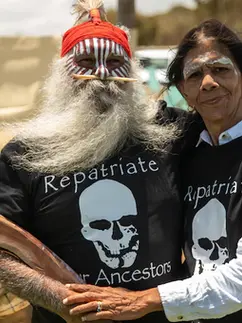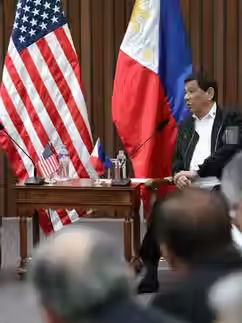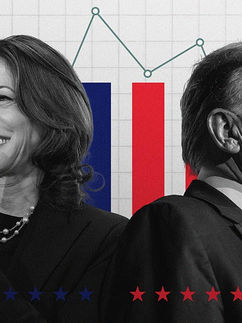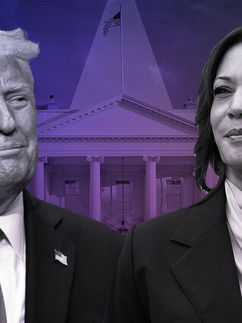Black Lives Matter in the Middle East and North Africa
- Holly-Rose Biskup
- Aug 21, 2020
- 4 min read
Updated: Jan 27, 2022

Holly-Rose Biskup
After the murder of George Floyd in Minneapolis, the Black Lives Matter movement gained unprecedented momentum. The protests that followed Floyd's death have had a cascading effect, not only in the US, but globally. In the Middle East, journalists, citizens, politicians and celebrities are speaking out about racism via social media. They are speaking out, not only about individual’s racial prejudices, but also about systemic issues prevalent within the nature of the kafala employment system, the lack of representation in Arab entertainment and racialised socio-economic inequality.
Within days of the American protests, concerted campaigns, orchestrated by a number of prominent Arab and Arab-American social-media activists, academics, and influencers, began raising anti-racism awareness. Mafaz Al-Suwaidan and Rana Abdelhamid shared “Six Ways for Arabs to Resist Anti-Blackness,” on social media and asked their followers to educate themselves on the history of the Arab slave trade and treatment of people of colour by non-Black Arabs. An Arabs for Black Lives initiative was launched by a number of Arab-American activists, and a petition promising to, “take this moment of outrage and mourning ...to eradicate anti-Blackness and racism from anywhere it persists within the community”, was signed by many, including Congresswoman Rashida Tlaib. The most widely shared account illuminating issues of racism in the MENA region was a video by Maryam Abu Khaled, a Black Palestinian comedian who recalled her experience with “unintentional and indirect racism” in Arab culture that is often naively viewed as light-hearted jokes. Maryam’s video on her Instagram was viewed over 1.2 million times and led others to open up about their struggles with racism and the need for awareness of these issues within their community. Indeed, many admitted that they often heard derogatory terms used to describe people of colour from their elders and sometimes their peers. In particular, the word abeed, meaning “slave,” has been used to describe people with dark or black skin, including President Barack Obama.
Others in the Black Lives Matter movement have pointed to Arab media and the ubiquitous racist references made, including the use of blackface in Arab entertainment. In Arab and Persian film and television, there is a distinct lack of POC and, when they do appear, they are relegated to stereotypical or menial roles such as servants or entertainers. Racism is also evident in marketing that reinforces the idea that light skin is ‘better’. Marketing by big multinational companies such as Unilever and Johnson & Johnson have promoted skin-lightening creams in the Middle East and India. However, due to backlash last month, Johnson & Johnson stated they would halt sales of its Clean & Clear Fairness line of products. Days later Unilever followed in their steps announcing they would be changing their products and removed words such as “whitening” and “fair” from their product’s labels. Biases toward pale skin in the media often translate into the economic and social marginalization of Black populations in various parts of the Arab world, as communities of African origin in the Middle East generally are in higher levels of poverty and have less access to economic, educational, and social opportunities than their white counterparts. The momentum generated on social media has encouraged many Black Arabs to speak up about racism they have rarely vocalised yet long endured.
During the Movement, there has been a particular emphasis on the racist nature of the kafala employment system. The system is said to disadvantage, not only domestic workers from Ethiopia, Ghana and other African countries, but also darker-skinned Asians from Indonesia and the Philippines. The kafala employment system excludes foreigners from domestic labour laws and enables employers to have control over the residency of foreign workers. By this, employers have the power to withhold domestic workers’ passports and severely limit their freedom and ability to protest abusive work conditions. In many instances, employees have reported to suffer physical, psychological and sexual abuse with little recourse. It is a policy that many human rights activists and Former Lebanese labour minister, Camille Abousleiman have likened to a modern form of slavery. Aya Majzoub a Lebanon researcher for Human Rights Watch said that the Black Lives Matter Movement has “forced society to face the systemic racism inherent in the kafala system and in the way we treat migrant workers... people started to understand that the abuse against migrant domestic workers was not caused by ‘a few bad employers,’ but rather by a system that enables and even encourages society to treat these women as second-class humans.”
In the MENA region, racism is prominent for people of colour. Social media provides a powerful and unique platform where minority voices can quickly be amplified beyond what was ever possible through traditional media. This is clear with today's movement where pushback has occurred. The Black Lives Matter movement in the MENA region has highlighted systemic issues and rhetoric used within the societies and the need for it to change.
Holly-Rose Biskup is The Young Diplomat Society's Regional Correspondent for the Middle East and North Africa

















Comments